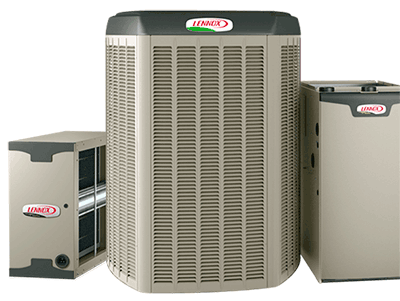In today’s world, where energy efficiency and sustainability are more important than ever, understanding how to reduce your home’s energy consumption while maintaining comfort is crucial. For homeowners, particularly those considering HVAC or home repair services, making energy-conscious decisions can lead to significant cost savings and a reduced environmental impact. This blog will cover key aspects of energy efficiency, including tips for heating and cooling, eco-friendly technologies, understanding efficiency ratings, best practices for reducing energy consumption, and the benefits of solar-powered options.
Energy-Saving Tips for Heating and Cooling
Heating and cooling account for a significant portion of household energy use. Here are some practical tips to help you save energy and reduce costs:
- Regular Maintenance: Ensure your HVAC system is regularly serviced to operate at peak efficiency. Dirty filters, clogged ducts, or worn-out components can cause your system to work harder, consuming more energy.
- Programmable Thermostats: Invest in a programmable or smart thermostat. These devices can automatically adjust temperatures based on your schedule, reducing energy use when you’re not home.
- Seal Leaks: Ensure your home is well-insulated and that there are no gaps around windows, doors, or ducts. Sealing leaks can prevent warm or cool air from escaping, reducing the workload on your HVAC system.
- Use Ceiling Fans: Ceiling fans can help distribute air evenly throughout your home, allowing you to set your thermostat a few degrees higher or lower without sacrificing comfort.
- Zoning Systems: Consider installing a zoning system that allows you to control temperatures in different areas of your home independently. This can prevent wasting energy on heating or cooling unused spaces.
Learn more
Eco-Friendly AC and Heating Technologies
Modern HVAC systems are increasingly adopting eco-friendly technologies that minimize environmental impact while maximizing efficiency. Here are some technologies to consider:
- Geothermal Heat Pumps: These systems use the earth’s stable underground temperatures to heat and cool your home. Geothermal systems are highly efficient and can reduce energy consumption by up to 50%.
- Variable Speed Compressors: Unlike traditional HVAC systems that operate at full capacity regardless of need, variable speed compressors adjust their output based on the home’s temperature. This leads to significant energy savings and increased comfort.
- Ductless Mini-Split Systems: These systems allow for targeted heating and cooling without the need for extensive ductwork. They are highly efficient and ideal for homes without existing duct systems.
- Green Refrigerants: Traditional refrigerants are harmful to the environment. Newer systems use eco-friendly refrigerants like R-32, which have lower global warming potential (GWP).
Learn more
Understanding SEER, AFUE, and HSPF Ratings
When shopping for HVAC systems, you’ll encounter various efficiency ratings. Understanding these can help you make more informed decisions:
- SEER (Seasonal Energy Efficiency Ratio): This rating measures the cooling efficiency of an air conditioner or heat pump. The higher the SEER rating, the more efficient the unit. Look for systems with a SEER rating of 15 or higher for optimal efficiency.
- AFUE (Annual Fuel Utilization Efficiency): This rating is used for furnaces and measures how efficiently a furnace converts fuel into heat. A higher AFUE rating indicates better efficiency, with modern furnaces often having an AFUE of 90% or more.
- HSPF (Heating Seasonal Performance Factor): This rating applies to heat pumps and measures their heating efficiency. A higher HSPF rating indicates a more efficient system, with 8.5 and above considered good.
Learn more
Best Practices for Reducing Energy Consumption
Beyond choosing the right equipment, adopting these best practices can further reduce your energy consumption:
- Regular Filter Changes: Dirty filters can significantly reduce HVAC efficiency. Change or clean filters every 1-3 months, depending on usage.
- Proper Sizing of HVAC Equipment: Ensure your HVAC system is properly sized for your home. An oversized or undersized system can lead to inefficiency and increased energy costs.
- Utilize Natural Ventilation: During cooler months, take advantage of natural ventilation by opening windows and doors to allow fresh air to circulate.
- Upgrade Insulation: Improve your home’s insulation to reduce the amount of energy required to maintain comfortable temperatures.
- Energy Audits: Consider having a professional energy audit conducted. This can identify areas where your home is losing energy and provide recommendations for improvement.
Learn more
Solar-Powered Air Conditioning and Heating Options
As solar technology becomes more accessible, solar-powered HVAC systems are gaining popularity. These systems use solar panels to convert sunlight into electricity, which then powers your air conditioning and heating units. Here’s why you should consider solar-powered options:
- Cost Savings: While the initial investment can be high, solar-powered systems can significantly reduce or even eliminate your electricity bills over time.
- Environmental Impact: Solar energy is renewable and produces no greenhouse gas emissions, making it a highly sustainable option for powering your home.
- Energy Independence: Solar-powered systems can reduce your reliance on the grid, providing greater energy independence, especially in areas prone to power outages.
- Incentives and Rebates: Many governments offer incentives and rebates for installing solar energy systems, which can help offset the initial costs.
Learn more
Conclusion
Energy efficiency and sustainability are not just trends—they’re essential practices for reducing your environmental footprint and saving money on energy bills. Whether you’re upgrading your HVAC system, sealing leaks, or considering solar power, these strategies can help make your home more efficient and eco-friendly. By staying informed and taking proactive steps, you can enjoy a comfortable home while contributing to a healthier planet.


